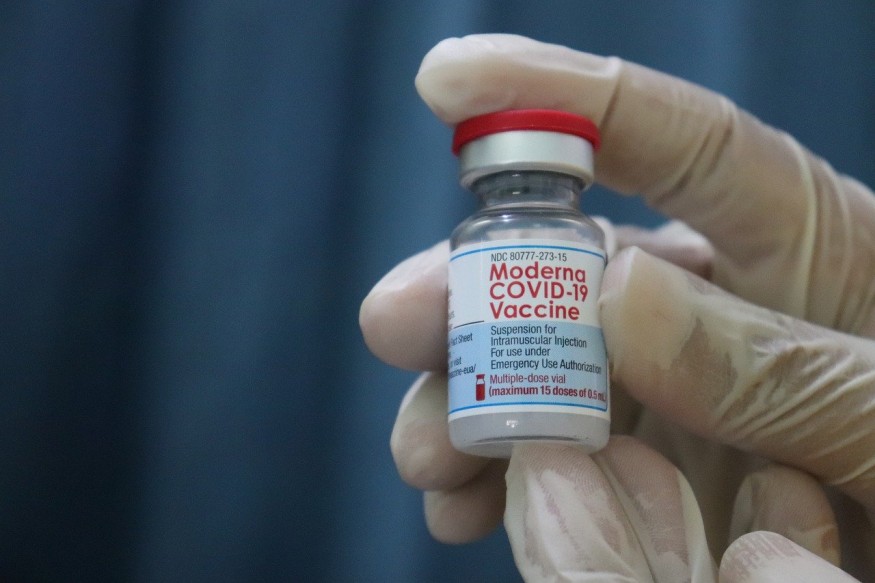
Two doses of the Moderna vaccination might not be enough to protect against the COVID-19 Omicron variant.
The research, named "Booster of mRna-1273 Vaccine Reduces Sars-Cov-2 Omicron Escape From Neutralizing Antibodies," comes after early findings that two doses of the Pfizer/BioNTech vaccine may have lowered omicron protection.
"The omicron variant undoubtedly compromised the effects of a two-dose mRNA vaccine-induced antibodies and reduces the overall protection," Dr. Anthony Fauci, the chief medical adviser to President Joe Biden, said during a White House briefing on Wednesday.
Early lab data obtained by Science Times show that the Pfizer vaccine's first two doses may not fully protect against the said variant and that three doses may be required to restore those safeguards. The Moderna and Pfizer COVID vaccines are both mRNA vaccines.
COVID-19 Omicron Variant Evades Moderna Vaccine, Booster Shots Needed
The mention of a COVID-19 booster has been put to the top of the page by Omicron. According to the CDC, nearly 24 million people in the United States have gotten the Moderna vaccination booster, critical for protection.
A preliminary study released Wednesday studied the blood samples from 30 people who received two Moderna shots. They learned that the antibodies are at least 50 times less effective in neutralizing the omicron variant just like Pfizer-BioNTech.
However, NPR clarified that Moderna's booster shots were highly efficient in fighting the infection.
Moderna CEO Noubar Afeyan Fox News last week: "Our expectation ... is that a boosted person will be protected, certainly against serious disease and hospitalization."
According to the company, Moderna is developing an omicron-specific booster vaccine and evaluating a COVID-19 vaccine that might defend against various mutated coronavirus strains if a variant-specific vaccine is needed. Reuters said the pharmaceutical firm is also working on a vaccination that combines this year's flu vaccine with the COVID-19 booster vaccine. But it's not yet available.
ALSO READ : Can Mouthwash Treat COVID-19? Reduction of Virus in the Mouth Possible But Is Not a Cure
Moderna is also exploring if a 100-microgram dosage of its booster, rather than the existing half dose, gives superior protection against the omicron variety as part of its booster trial.
If Moderna needs to develop a new variant-specific vaccine, it might be ready as early as 2022.
Experts and regulators have long cautioned that vaccination protection might fade over time, and booster shots, an additional dose of vaccine given after the original course-are commonly used in medicine to combat this.
CNN said the definition of "completely vaccinated" will be broadened in the future to include a third coronavirus vaccine dose, as is the case with other vaccinations. While avoiding infection is vital for disease control, immunization has other purposes. Experts believe there is substantial evidence that immunizations are still helpful in preventing major disease, hospitalization, and death from COVID-19.
Vaccines Still Effective
Forbes said mRNA vaccinations were 95 percent effective at preventing coronavirus infection in the first month following the final dose, declining to 88 percent by the third month.
Protection against infection had declined to 62 percent in the first month following the second injection and 58 percent by the third month, a similar trend to the pre-delta period, from July to September, a period of significant delta transmission in the United States.
Vaccine efficacy fell at an increasing pace after the third month. The researchers could only see during times of high delta transmission-falling to 38 percent in month four and a low of roughly 20 percent in months five through seven.
Experts said the reduction might be related to both increased transmission of the delta variation and declining vaccination protection over time.
RELATED ARTICLE: New Version of Omicron COVID-19 Variant Recently Detected; 'Stealth' Variant May Be Harder to Track
Check out more news and information on COVID-19 in Science Times.
© 2026 ScienceTimes.com All rights reserved. Do not reproduce without permission. The window to the world of Science Times.












